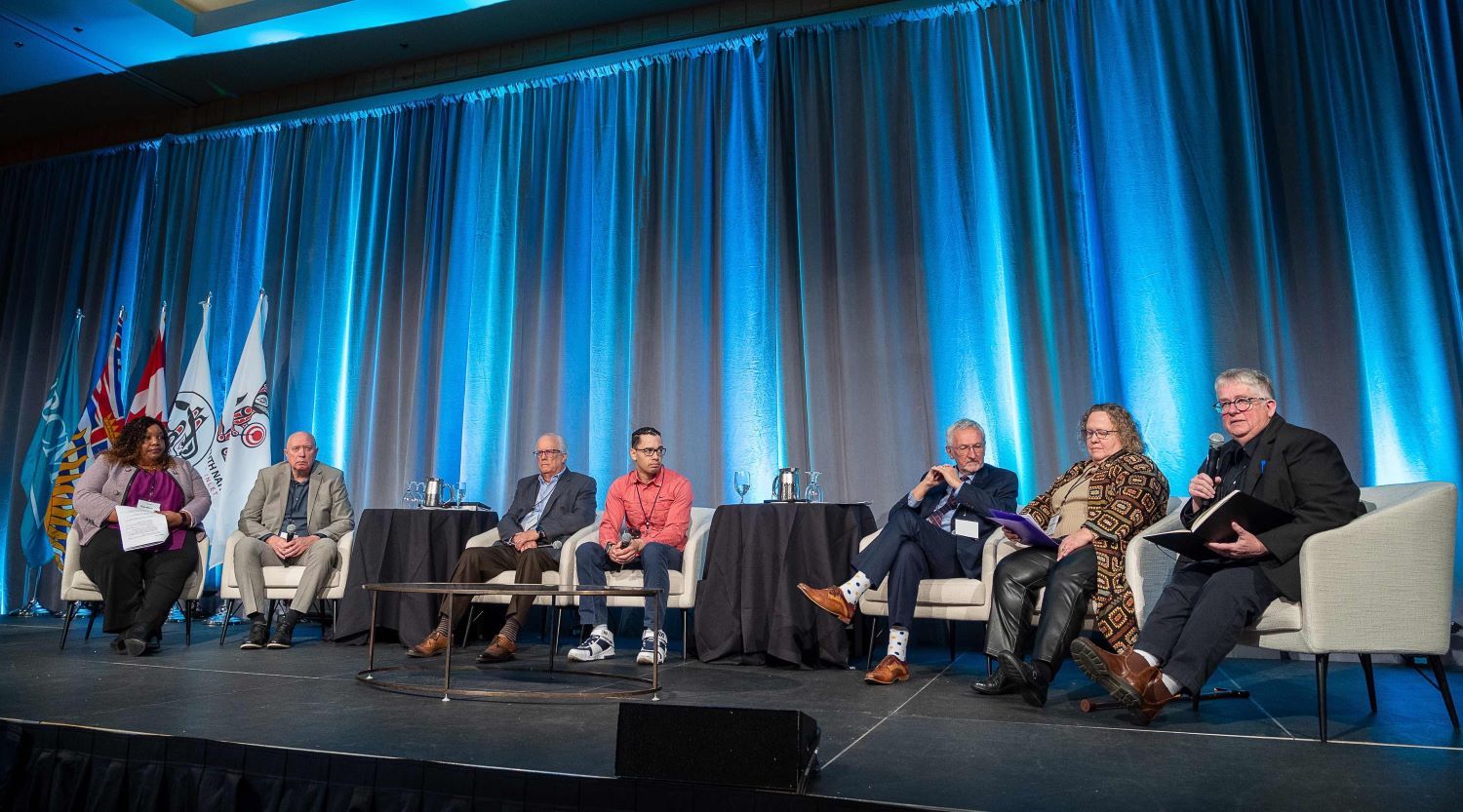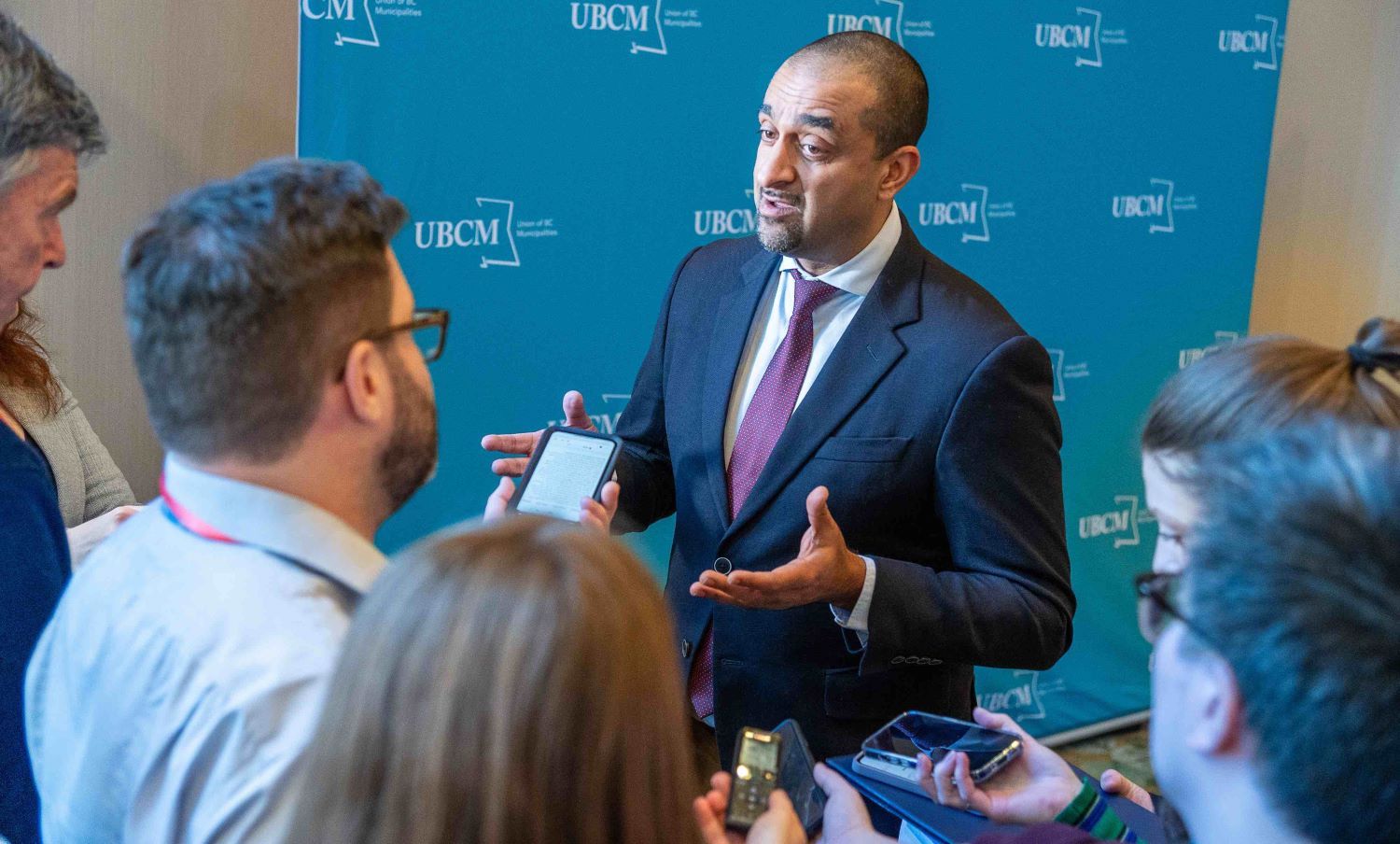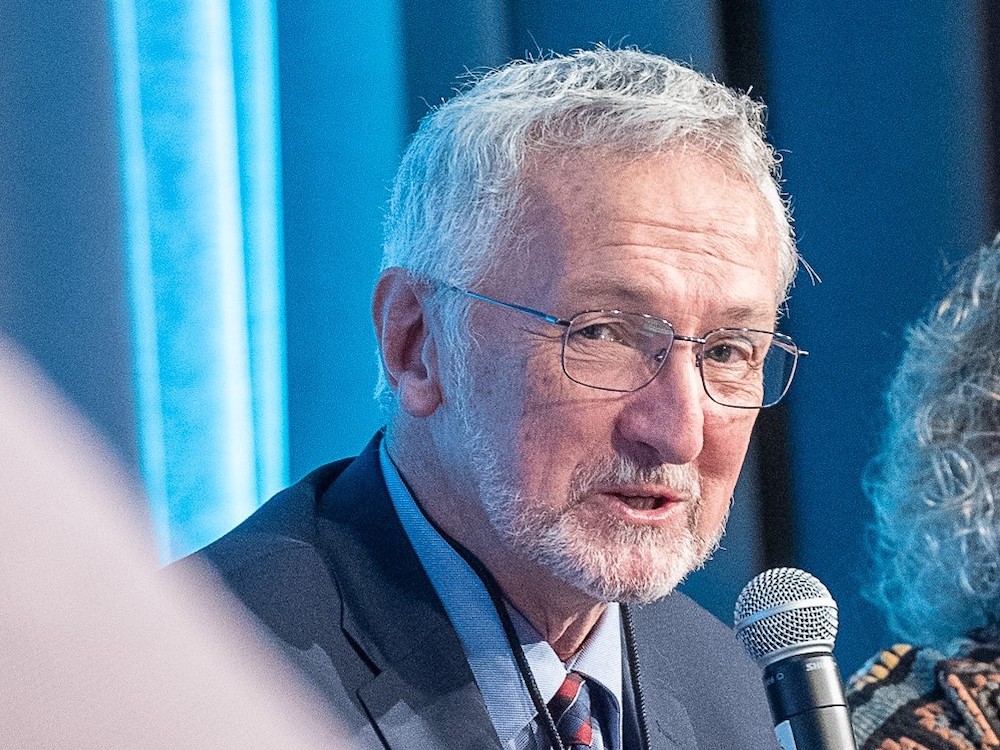At a housing summit that concluded on Valentine’s Day, local governments were working out a new stage of their relationship with senior governments.
Housing announcements have been coming fast and furious since the fall — everything from funding and zoning reforms to new programs targeting different housing needs — pressuring local governments and their staff to pivot from their pre-existing plans.
Housing might have been the central topic of the two-day summit, hosted by the Union of BC Municipalities, but discussion spun off on everything from immigration, transportation and tax to the cost of basic infrastructure like pipes to serve growth.
The summit kicked off with a candid session that featured six mayors, who felt that the provincial legislation came too suddenly.
City of Langley Mayor Nathan Pachal said he heard about the slew of changes indirectly from “the press release on the government website.”
Burnaby Mayor Mike Hurley said he, too, was caught off guard, and the quick rollout of provincial reforms resulted in his staff needing to “force two years of work into four months” to revise their official community plan in time.
“The road to hell is paved with good intentions. I don’t think this is the road to hell; I think the province is responding to the most basic of human needs, which is shelter,” said Nanaimo Mayor Leonard Krog. “But it’s going to take a little while to work out some of the kinks that are in this.”
‘Not a fan’
Perhaps the frankest panellist of all was Richmond Mayor Malcolm Brodie, who took aim at the province’s decision to override municipal zoning to allow multiplexes of up to four units in single-family neighbourhoods and six units if they’re near rapid transit.
“I’m not a fan of what the province has done,” he said. “I think we’re all agreed... that we need to provide more housing. But as far as I’m concerned, the answer is not to throw it open and have four- and six-plexes everywhere when there’s a whole raft of issues from neighbourhoods to parking to infrastructure.”
Like nearby Burnaby, Richmond has been channelling density on major arterials and transit hubs in a “very strategic and careful” manner, he added. Plus, the two big cities have been implementing in-house affordable housing strategies.
“As far as I’m concerned, we want to stay the course,” said Brodie. “The area of Steveston has nothing but small lots. If you put four, six units on all of those small lots, you’re going to absolutely destroy really a fine neighbourhood in our city.
“We will have to deal with the densification that is going to be decentralized and it’s going to be all over the city. So the effort to control the situation and to provide the services that we need is really limited.”

Hurley of Burnaby said welcoming multiplexes would mean expensive upgrades to single-family neighbourhoods with 1950s and ’60s infrastructure. Mayor Janice Morrison of Nelson said that smaller communities like hers had infrastructure even older than that, dating back a century.
One provincial change that the mayors had differing opinions on was the scrapping of public hearings for residential projects that are already permitted under an approved official community plan.
“We all know as politicians that they can be draining and difficult, but that’s the public’s time when they can come out and speak to a particular issue,” said Brodie of Richmond. “I don’t know. I have no idea why the government of the day is taking away the public hearings. I think that is fundamental of our process.”
But Morrison of Nelson supported the province’s move because it would “save staff time to get the project moving forward quicker.”
Hurley of Burnaby reiterated a change that the Federation of Canadian Municipalities has been pushing for: a new municipal funding framework that is tied to population and economic growth.
Currently, local governments receive 10 cents for every federal tax dollar and must make ad hoc asks when they need more.
‘A perfect storm’
The summit held sessions featuring lawyers and planners on the nuts and bolts of the sheer volume of legislative changes, with one panellist telling the audience to take “a collective breath.”
Another acknowledged that the changes mean local governments have more tools than ever to confront the housing crisis.
One special guest was federal Housing Minister Sean Fraser, who answered questions about his government’s $4-billion Housing Accelerator Fund, with money awarded to local governments that demonstrate innovative growth strategies.
During his turn at the microphone, a councillor from Peachland half-jokingly chanted the name of his community in an attempt to subliminally influence the minister to give them money.
Provincial Housing Minister Ravi Kahlon attended some of the summit too. Breaking away from some politicians asking for selfies, he took interviews with media to defend his recent actions.
On what mayors said was a lack of consultation, Kahlon said some of these ideas had been shared with them since 2018.
On the burden of growth on infrastructure, he cited a report by Metro Vancouver that said that up to four units is the “best use of the existing infrastructure as it exists.”

Kahlon reminded cities that $51 million is up for grabs to help them keep up with the new legislation, part of a grant program the province launched last month.
Kahlon spent some of his time onstage during the summit to showcase new initiatives like BC Builds and the Rental Protection Fund. He also hinted at inclusionary zoning legislation — the ability to mandate a certain type of unit in a development — coming this spring.
By stepping in with policies that affect the whole province, Kahlon hopes the heat will be taken off of municipalities already doing their best to densify when their neighbours aren’t.
“It’s a perfect storm we’re dealing with,” he said. “When you have one community taking on housing and the neighbouring communities not taking on the same level of housing, all you’re doing is shifting populations.”
He cited the example of Victoria, which rolled out a “missing middle” program to densify single-family neighbourhoods with little uptake.
“People in Victoria were saying, ‘Why are we doing this? Oak Bay is not doing it. Saanich is not doing it. Esquimalt’s not doing it.’ It’s important to know that when you’re in a housing crisis, everyone has to help.... The rules that we put in place with our legislation will ensure that all communities are moving forward together.”
The Tyee asked about large cities like Burnaby and Richmond, whose elected leaders have expressed concerns that the province is intruding on their existing plans.
“If communities feel like they’ve gotten enough and they don’t have housing challenges in their community, I would welcome any community to tell me that’s the case,” he said.
Another reporter asked what the minister had to say about the general grumbling and worries from B.C.’s mayors.
“At some point, we have to stop talking about it and start getting on with the work, and that’s what we’re trying to do with our legislation.” ![]()
Read more: Politics, BC Politics, Housing, Municipal Politics
















Tyee Commenting Guidelines
Comments that violate guidelines risk being deleted, and violations may result in a temporary or permanent user ban. Maintain the spirit of good conversation to stay in the discussion and be patient with moderators. Comments are reviewed regularly but not in real time.
Do:
Do not: